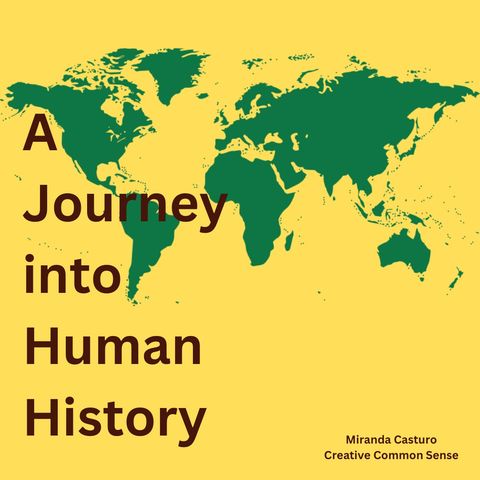From the Mamluks to Ming China

Descarga y escucha en cualquier lugar
Descarga tus episodios favoritos y disfrútalos, ¡dondequiera que estés! Regístrate o inicia sesión ahora para acceder a la escucha sin conexión.
From the Mamluks to Ming China
Esta transcripción es generada automáticamente. Ten en cuenta que no se garantiza una precisión absoluta.
Descripción
The Abbasids, Ayyubids, and Ottomans all depended on enslaved or formerly enslaved people to staff their armies and run their administrations. Christian boys were taken from their parents, forced to...
mostra másIn Egypt, the mamluk soldiers overthrew the Ayyubid sultan in 1250 and established the Mamluk Sultanate. Because succession to the throne was controlled and not hereditary, the Mamluk Sultanate could maintain sway over Egypt and the Levant and fight off challenges from the Mongols until it was defeated by the Ottomans in 1517.
The Ming dynasty came to power in China after revolts drove out the Mongol rulers of the Yuan dynasty. The Hongwu emperor eliminated all challenges to his rule by creating a secret police force, eliminating the position of chief minister, and putting down rebellions in distant provinces. He forbade most foreign trade in order to protect China from foreign influences. The Yongle emperor resumed foreign trade and collected tribute, and Chinese silks and porcelains were traded in Europe, Africa, India, and western Asia. Despite China’s great power, the Ming had difficulty controlling the Mongols.
All images referenced in this podcast can be found at https://openstax.org/books/world-history-volume-1/pages/17-2-from-the-mamluks-to-ming-china
Welcome to A Journey into Human History.
This podcast will attempt to tell the whole human story.
The content contained in this podcast was produced by OpenStax and is licensed under a Creative Commons Attribution License.
Access for free at https://openstax.org/books/world-history-volume-1/pages/1-introduction
Podcast produced by Miranda Casturo as a Creative Common Sense production.
Información
| Autor | Miranda Casturo |
| Organización | Miranda Casturo |
| Página web | openstax.org |
| Etiquetas |
Copyright 2024 - Spreaker Inc. an iHeartMedia Company
